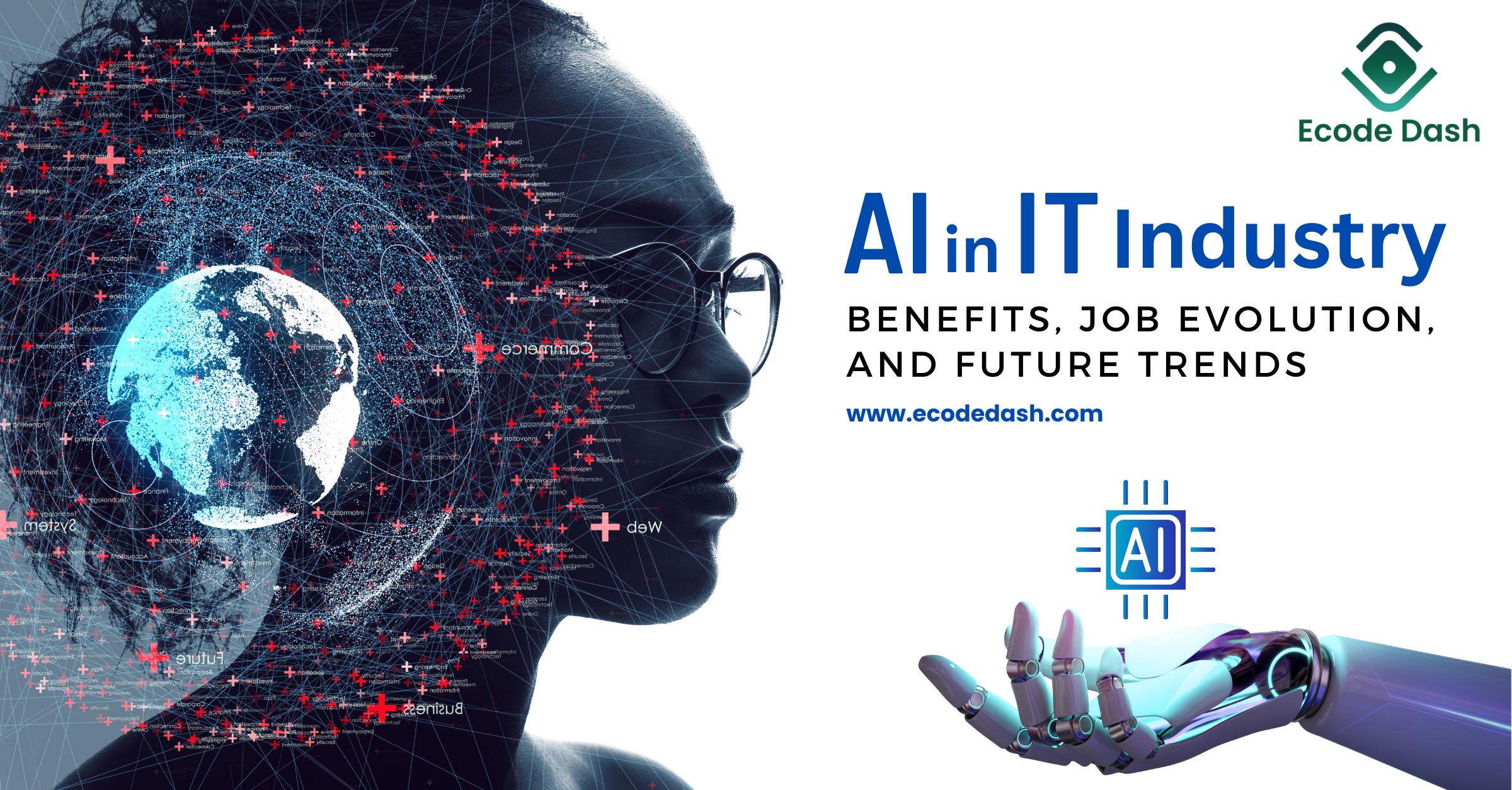
The omnipresence of Artificial Intelligence (AI) is undeniable! Whether you're scrolling through news articles or watching YouTube, the buzz around AI is palpable. Its pervasive influence is reshaping various sectors, with the IT industry being no exception.
The economic impact of AI is expected to be significant. According to a study by PwC, AI could contribute up to $15.7 trillion to the global economy by 2030.
This includes productivity gains from businesses automating processes & augmenting their labor forces with AI technologies, as well as increased consumer demand resulting from the availability of personalized and AI-enhanced products & services.
Let’s embark on the exploration of AI emergence in IT, its benefits, the role of AI in IT job roles & skills, and future trends.
The roots of AI can be traced back to 1955 when the term was coined by the eminent mathematician John McCarthy at Dartmouth College. Since then, AI has evolved into a concept that simulates human intelligence processes using machines, particularly computers.
In the realm of IT, AI encompasses a spectrum of technologies such as Natural Language Processing, Machine Learning, Deep Learning, Expert Systems, and Speech Recognition, among others. These technologies empower machines to perform tasks that were once exclusive to human cognition.
With the exponential growth of data, AI technologies have become essential for handling large volumes of information as AI algorithms can identify patterns and anomalies in data, providing real-time insights that help improve data protection approaches. By automating data management processes, AI enhances efficiency and reduces the risk of errors. Besides this, AI can assist in data categorization, retrieval, and classification, making data management more efficient and effective.
Earlier, it was difficult to keep track of current trends and competitive markets. It would take hours to manually research and adapt to new technologies, requiring experts to first study the market, understand, and come up with their solutions.
Now, AI is driving technological advancements in the IT industry by enabling organizations to stay competitive in a rapidly evolving digital landscape. AI technologies such as Machine Learning, Computer Vision, Deep Learning, and Natural Language Processing (NLP) are being used to analyze market trends, customer behavior, and competitor strategies.
These technologies provide valuable insights that help organizations make informed decisions and develop innovative solutions.
AI is revolutionizing HR recruitment processes, making them more efficient and effective. AI-powered recruitment tools can analyze resumes, identify qualified candidates, and even conduct initial interviews. By automating these tasks, AI frees up HR professionals to focus on more strategic initiatives, such as candidate engagement and employee development.
Additionally, AI can help organizations improve their recruitment strategies by providing data-driven insights into candidate preferences and behavior. Overall, AI is transforming HR recruitment processes, making them faster, more accurate, and more cost-effective.
As you are already aware, traditional cybersecurity techniques rely on signatures or indicators to detect threats, which can be limited in identifying new or unknown threats. AI-powered cybersecurity solutions use behavioral analysis and threat intelligence to monitor network traffic, system logs, and user behavior, identifying anomalies and activities that may indicate security risks.
By leveraging AI, organizations can enhance their cybersecurity posture, detect threats more effectively, and respond to incidents in real time, reducing the impact of cyber attacks.
AI-powered chatbots and virtual assistants provide users with immediate assistance and resolve common issues automatically. These AI-powered systems can handle routine requests, such as password resets and software installations, freeing up IT support teams to focus on more complex issues.
Organizations can improve the efficiency and effectiveness of their IT support operations, leading to higher user satisfaction and reduced support costs.
By analyzing data from sensors and other sources, AI algorithms can identify patterns and trends that indicate potential failures. This proactive approach to maintenance helps organizations avoid costly downtime and repairs, leading to increased operational efficiency and cost savings.
AI can help organizations optimize their maintenance schedules, ensuring that maintenance is performed only when needed, further reducing costs and improving equipment reliability.
AI is particularly reshaping IT job roles and required skills. It’s automating routine tasks, allowing IT professionals to focus on strategic and complex issues. This shift is ultimately creating new roles in AI development, machine learning, data science & cybersecurity.
As we gaze into the future, the horizon of AI in the IT industry appears promising and brimming with opportunities.
The proliferation of Chatbots– Chatbots are expected to become even more prevalent in the IT industry, serving as virtual assistants for various tasks. They will be more intelligent and capable of handling complex queries and providing personalized responses.
Enhanced Product Recommendations– AI algorithms will continue to improve product recommendations, based on a deeper understanding of customer behavior and preferences. This will lead to more accurate and relevant suggestions, enhancing the overall customer experience.
Ethical Considerations– As AI becomes more pervasive, there will be a greater emphasis on ethical considerations. Organizations will need to ensure that AI algorithms are fair, unbiased, and transparent, addressing concerns around algorithmic bias and discrimination.
Meta Workplace– The concept of the Meta workplace, enabled by AI and virtual reality (VR) technologies, will redefine how we work. It will enable remote collaboration, virtual meetings, and immersive work experiences, blurring the lines between physical and digital workspaces.
Edge Computing– With the proliferation of Internet of Things (IoT) devices, edge computing will become more important. AI algorithms will be deployed at the edge, enabling real-time data processing and analysis, reducing latency & improving efficiency.
Quantum Computing– While still in its infancy, quantum computing holds the potential to revolutionize AI and the IT industry as a whole. Quantum algorithms will enable computations that are currently infeasible with classical computers, opening up new possibilities for AI applications.
By leveraging AI, companies can not only improve operational efficiency and reduce costs but also enhance customer experiences and drive new revenue streams.
But do remember that staying competitive in the AI-driven IT landscape requires a strategic vision that aligns technological capabilities with business objectives, ensuring a sustainable and resilient growth trajectory…